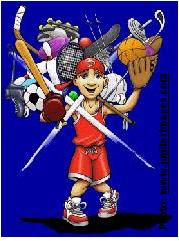Listen before giving advice: letting students make and correct their own mistakes is critical for student growth. Try remembering when you were a teenager and how you learned best. Often times you learned more when you were allowed to make a mistake and correct it on your own then being told not to do something and not allowed to even try one way and realize it was a mistake. A practical way you can do this in your classroom is by giving student’s more freedom and not setting up completely structure guidelines for projects.
An example would be to have students examine and teach a battle from the Revolutionary War to the rest of the class. Students could do this using power-point. They could have the students reenact this battle, they could write and read a poem they wrote about the battle but allowing them the freedom to see what works for them will allow them to learn more about themselves and their own learning styles and encourage them to further develop these styles in the future.
Another example is to have student’s pick their own topics related to a theme for a paper rather than giving everyone a specific topic.
When you listen to the student’s needs before hanging out advice and listen to the student’s ideas you can get to know your students better and allow them the freedom to express themselves and in turn learn more about themselves.
Model Adult actions and behaviors: One of the greatest ways you can influence your students and help aid them in growth is to act like an adult and model for your students how adults respond differently to situations verse how adolescence respond. You can do this in the way you say things or the way you do things and you can also challenge students to begin thinking like an adult in a safe environment such as the classroom. One way you can encourage them to think like an adult and reflect on how that is different from the way they think as an adolescent is to create a task where students would need to reflect on a situation how they would respond and how their parents or teachers may respond differently. They could then write a short paragraph on why they think their responses are different. This can begin to start the discussion on how students are in a transition phase of their life.
Have students reflect on their own life and their patchwork self: As teachers we can encourage students to grow and aid in their growth by asking students to reflect on their lives and why they take on certain roles. By encouraging students to think about themselves and interpersonalize their lives we can assist them in developing a greater knowledge about who they are as an individual. It is not until students understand at least to some degree who they are, that they can start to grow more into a role of who they would like to become.
Advice from teachers:
"Student's want to learn, we just have to make learning fun and interesting. With all of the stimulants student's receive outside of the classroom, they do not want to come in for a boring lecture. We must make history not only exciting but living and active." - Chicago Public School Social Studies Teacher 15 years.
"If I had one word of advice it would be to not let your job overtake you, good teachers have a life outside of the classroom." - 6th grade Math teacher
"Being a teacher is great! Remember though that you may not always see the flowers bloom you helped plant. But God calls us to only help plant the seeds, it is His job to water them and watch them grow." - Religion Teacher


No comments:
Post a Comment